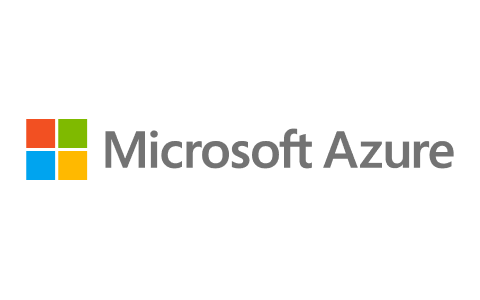Web Analytics for Beginners
Enrol now for this free Web Analytics Introductory Course and learn from top instructors! Get insights on tools like Google Analytics, metrics like bounce rate and conversions, and more. Master data-driven decision making!

Ratings
Level
Learning hours
Learners
Skills you’ll Learn
About this course
This Free Web Analytics course is perfect for anyone who wants to learn more about Web Analytics, whether you're a beginner or just want to refresh your knowledge. The course starts with an introduction to Web Analytics, where you'll learn what it is, how it works, and why it's important. After that, you'll dive into the various Web Analytics terminologies and tools, including Google Analytics, one of the most popular tools businesses use. You'll also learn about the role of Web Analytics in brand building and how it can help businesses better understand their audience and improve their online presence.
The course also covers best practices for Web Analytics, such as setting goals, tracking conversions, and measuring ROI. These best practices are essential for any business looking to make data-driven decisions and improve their online performance. Finally, the course will touch on Web Analytics career opportunities. With the rise of digital marketing and e-commerce, Web Analytics is a growing field that offers many job opportunities for those with the right skills and knowledge.
Course Outline
This module covers the basics of web analytics, including the importance of measuring website traffic, visitor behavior, and the role of analytics in digital marketing.
This module covers the key terms and concepts used in web analytics, such as page views, bounce rate, conversion rate, and goal tracking.
This module covers the different web analytics tools, including Google Analytics, Adobe Analytics, and others, and how to use them to gather data and insights.
This module covers the best practices for web analytics, including setting clear goals, tracking and measuring key metrics, and using data to make informed decisions.
This module covers the utilization of web analytics as a means for companies to establish and enhance their online brand presence, including tracking brand mentions, analyzing customer feedback, and measuring the impact of marketing campaigns.
Ratings & Reviews of this Course
Frequently Asked Questions
Will I receive a certificate upon completing this free course?
What are the prerequisites required to learn this Web Analytics for Beginners Course?
You do not need any prior knowledge to learn this Web Analytics for Beginners Course.
How long does it take to complete this free Web Analytics course?
Web Analytics for Beginners is a 1.0-hour long course, but it is self-paced. Once you enroll, you can take your own time to complete the course.
Will I have lifetime access to the free course?
Yes, once you enroll in the course, you will have lifetime access to any of the Great Learning Academy’s free courses. You can log in and learn whenever you want to.
Why is the Web Analytics course so popular?
Web Analytics is an ever-growing concept and has a lot yet to be explored. It also makes a lucrative career option with high scope.
Popular Upskilling Programs
Web Analytics for Beginners
Web analytics refers to measuring, collecting, analyzing, and reporting website data to understand and optimize a website's performance. Web analytics aims to gather data about user behavior, traffic sources, and other key metrics to help website owners make data-driven decisions and improve their website’s effectiveness. Several types of web analytics exist, including on-site and off-site web analytics. On-site web analytics measures website activity on the website itself, while off-site web analytics measures website activity outside the website, such as through social media or other external sources.
On-site web analytics involves tracking user behavior, including page views, time spent on a page, bounce rate, and conversion rate. These metrics provide insight into how users interact with the website and can help website owners identify areas where they can improve the user experience. Off-site web analytics involves tracking user behavior outside a website, such as through social media or other external sources. This can include click-through rates, social media engagement, and referral traffic. These metrics provide insight into how users discover and engage with a website and can help website owners identify areas where they can improve their online presence.
One of the key benefits of web analytics is the ability to make data-driven decisions. By gathering and analyzing user behavior and website performance data, website owners can make informed decisions about improving their website and increasing conversions. This includes optimizing website content, improving user experience, and identifying growth opportunities. Another benefit of web analytics is the ability to measure the effectiveness of marketing campaigns. By tracking metrics such as click-through rate, conversion rate, and customer acquisition cost, website owners can evaluate the success of their marketing efforts and adjust their strategy accordingly. Several tools are available for web analytics, including Google Analytics, Adobe Analytics, and Piwik. These tools provide website owners with a wealth of data and analytics capabilities to help them optimize their website and improve their online presence.
However, web analytics also poses several challenges and ethical concerns. One of the biggest challenges is the potential for data privacy violations. Web analytics tools often collect data about user behavior and website activity, including personal information such as IP addresses and browsing history. This can raise privacy concerns and violate data protection regulations such as the General Data Protection Regulation (GDPR). Another ethical concern is the potential for web analytics to be used for unethical purposes, such as tracking users across multiple websites without their consent or collecting data for advertising purposes without proper disclosure.
To address these challenges and ethical concerns, it is important for website owners to be transparent about their use of web analytics and to prioritize data privacy and protection. This includes implementing privacy policies and obtaining user consent for data collection and tracking. It is also important for website owners to use web analytics responsibly and ethically to ensure that the data they collect is used only for legitimate purposes such as improving website performance and user experience.
Overall, web analytics is a powerful tool for website owners to understand and optimize their online presence. By gathering and analyzing data about user behavior and website performance, website owners can make informed decisions and improve their website’s effectiveness. However, it is important to address the challenges and ethical concerns associated with web analytics to ensure that it is used in a responsible and ethical manner.

































